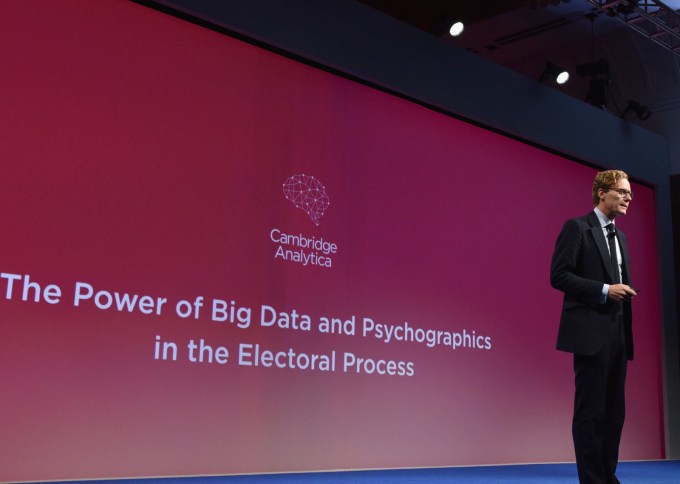Zuckerberg admits it was a mistake not to ban Cambridge Analytica’s ads
Facebook didn’t ban Cambridge Analytica when it found out in 2015 that it had received user data from Dr. Aleksandr Kogan, and Zuckerberg called that a mistake during his testimony before the Senate. Cambridge Analytica has since been banned.
Zuckerberg explained that “I want to correct one thing that I said earlier in response to a question from Senator Leahy. He had asked why we didn’t ban Cambridge Analytica at the time when we learned of them in 2015. And I answered that what my understanding was was that they were not on the platform, were not an app developer or advertiser. When I went back and met with my team afterwards, they let me know that Cambridge Analytica actually did start as an advertiser later in 2015, so we could have in theory banned them back then, and made a mistake by not doing so.”

NEW YORK, NY – SEPTEMBER 19: CEO of Cambridge Analytica Alexander Nix speaks at the 2016 Concordia Summit – Day 1 at Grand Hyatt New York on September 19, 2016 in New York City. (Photo by Bryan Bedder/Getty Images for Concordia Summit)
When the Guardian informed Facebook about Kogan sharing user data to Cambridge Analytica, Facebook banned Kogan, and required Cambridge Analytica to formally certify that it had deleted all the improperly attained user data. Cambridge Analytica did so, Zuckerberg confirmed in his prepared testimony for today. But Facebook then stopped short of blocking Cambridge Analytica from buying ads on its platform. The company went on to work with the Trump campaign to help it optimize political messaging and ad targeting.
Had Facebook banned Cambridge Analytica at the time, it wouldn’t have been able to buy ads directly on behalf of political campaigns with which it worked. However, the company might still have been able to help these campaigns to optimize their ads, so a 2015 ban wouldn’t have necessarily prevented second-hand use of improperly attained data.
Powered by WPeMatico